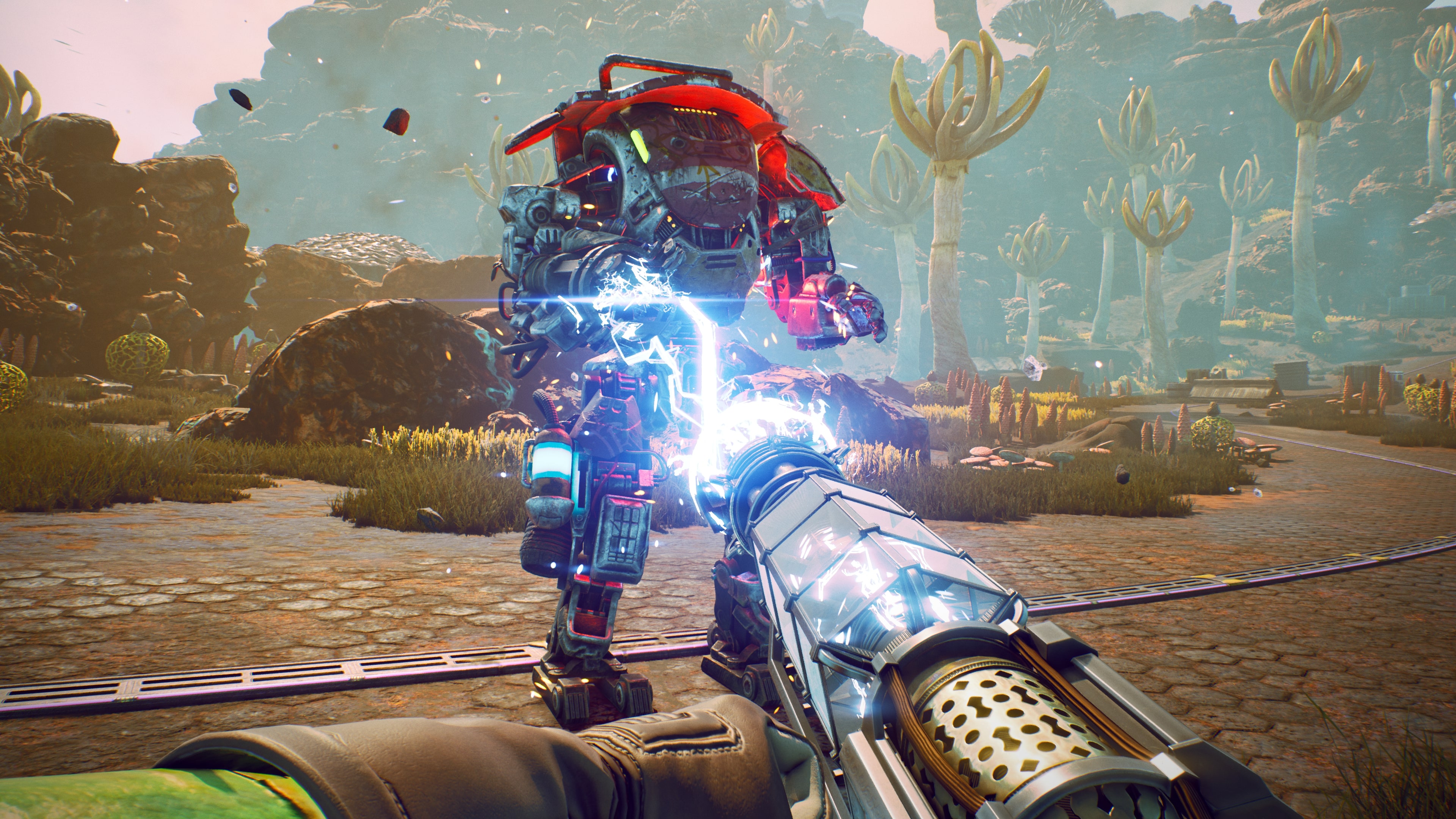

You can side against him in his quest to reform society. After Welles wakes you, you’ve got the option to turn him over to the authorities. Polygon notes that the game asks the player to decide “Am I a mercenary, a freedom fighter, a burnout, or a sociopath?” and then gives you the freedom to be any of these things. The game apparently focuses on the battle between workers and the corporations oppressing them, but how you resolve its scenarios is left up to the player. Who you choose to help and how you choose to help them apparently has a significant impact on the ending of the game. You can choose to side with the corporations that have created the society of Halcyon or overthrow them. According to them, The Outer Worlds shines because it gives the player tremendous freedom to resolve situations in ways that reflect their own political beliefs. Kotaku’s review dives deep into the way your choices shape the world around you. You can also avoid all these questions in favor of just shooting everyone you see and taking everything in sight, though as time goes on, you will see how your selfishness affects the people around you. Several questions drive the game: How do you create the ideal society? And who is at fault for bringing this one to its knees? What adequate punishment exists for those responsible, if there is one at all? The Outer Worlds acts as a mirror this way you answer these questions via the myriad choices you can make in the game, your moral standing met with visible consequences. What makes the game sound so interesting, however, is what you’re allowed to do about it. The scientist who revives you, Phineas Welles (one wonders if this is a Flash callback), informing you he needs your help to revive the other sleepers who were still aboard your ship and to hopefully save the mining planet/colony of Halcyon, where things have gone badly off the rails and corporations now wield near-total control over their citizens.Īll reviews report that TOW takes an unflinching look at the damage inflicted on society when corporations are able to exercise total economic and social control. You and your fellows represent the best and brightest of humanity - or you did, until your ship went off-course. Polygon describes the world of The Outer Worlds as a “space capitalist nightmare.” You awaken from cryosleep after 70 years onboard a colony vessel named The Hope. None of the reviews remark on this as a weakness, though they all note it as a difference that fans of Obsidian should be aware of. Think something closer to 40 hours, not 70+. Instead, you move from planet to planet in a game intended for a shorter overall experience.

The Outer Worlds is not like Fallout: New Vegas in one critical way - it’s not an open-world, endlessly explorable title.


 0 kommentar(er)
0 kommentar(er)
